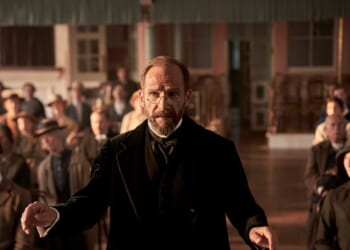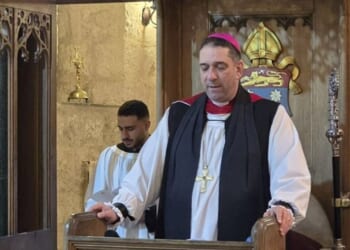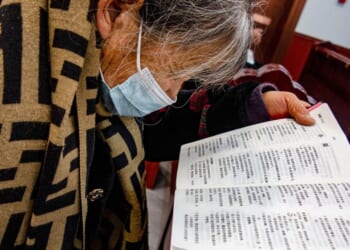William Faulkner wrote the short story titled “Was” for the New Orleans Times-Picayune in 1925 (subsequently included in Go Down, Moses). The band Was (Not Was) had an interesting career in the 1980s. In my work as counsel for TCF Financial Corporation’s Minnestoa banks, I became familiar with the Wazwaz family. I call this story Wazwaz (not Wazwaz).
As counsel for the bank I responded to subpoenas and requests for information from law enforcement. When I worked on the Wazwaz case, I met with agents from the federal agencies involved in an investigation involving the family business. I understood that they Wazwaz family ownwed and operated a cigarette shop in a Twin Cities suburb. It appeared largely to be a cash business.
As I understood the implication of the comments of the authorities with whom I met, when mother Wazwaz came to town from Beirut in 2003 for a family wedding, they thought she might leave town with cash destined for a sanctioned entity in the Middle East. The authorities learned of mom’s arrival in town and her scheduled return to Beirut.
Following the weddding, mom went through the departure process at the Minneapolis-St. Paul International Airport. Agents searched the lining of mother Wazwaz’s baggage and found six cashier’s checks worth $108,030. The authorites seized the checks and let mom continue on her way home to Lebanon.
It turned out that this seizure was only a small part of a larger story. The larger story could only be inferred from a 58-page indictment handed up by a Minnesota grand jury in 2007. The Star Tribune reported on the indictment at the time. Unfortunately, the 2007 Star Tribune account of the indictment is no longer available in the Star Tribune archives to which I have access.
Headlined “13 charged over tobacco sales fraud,” the Star Tribune story had a subtext that that the Star Tribune reporters didn’t touch. The text of the story reported that thirteen defendants had been indicted on federal charges of defrauding the state of more than $2.5 million in sales tax by concealing revenues from cigarette sales.
The indictment cited numerous attempts to conceal earnings and wealth through fraudulent bookkeeping and tax returns as well as property transfers and large cash transactions. One defendant was accused of stashing $1 million cash in his ceiling and another of buying a BMW with $20 and $50 bills.
Scott Tilsen was a federal public defender at the time (he is now retired). Representing one of the charged defendants, he said it was too early to know the full extent of what the government claimed or what it could prove. “They’ve charged a form of tax evasion over a four-year period involving a large number of individuals named and unnamed,” Tilsen said. “Traditionally, there’s always a few tax prosecutions brought … as we approach April 15.”
The case included one conspiracy count, 13 mail fraud counts, and 26 wire fraud counts. In addition to conspiracy charges, 11 of the defendants were accused of mail and wire fraud involving false or incomplete sales tax payments or filings.
All but one of the 13 defendants used or had used the last name Wazwaz. The defendants owned 52 Twin Cities-area tobacco stores, including Wholey Smokes in Blaine, Coon Rapids and Minnetonka, and Mr. Discount Tobacco I in Fridley and II in Roseville.
When I had a glimpse into the case, it was part of a joint investigation that included the ATF, the IRS, and the FBI. Why might it have attracted the attention of three federal law enforcement agencies, including the FBI? The need to dig beneath the surface of the charges was suggested by the reporters’ description of the indictment:
The 58-page indictment alleges that the dozens of transactions date from 1996 through the present and details numerous transactions involving thousands of dollars.
The defendants also are accused of transferring nearly $1 million to Jordan, Lebanon and the Palestinian territories through checks, currency and wire transfers backed by the tobacco store proceeds.
An unindicted co-conspirator was caught at the Minneapolis-St. Paul International Airport in March 2003 with six cashier’s checks worth $108,030 destined for Lebanon, the indictment said.
I believe the unindicted co-conspirator was mother Wazwaz.
The reporters didn’t suggest that the money might have been intended for nefarious uses in Jordan, Lebanon and the Palestinian territories, but I suspect the authorities had reason to believe that it was. If the reporters had checked the Star Tribune story on the seizure of the cashier’s checks from the unindicted co-conspirator at the airport in 2003, they would have found that the cashier’s checks had been sewn into the lining of one of her bags.
Rather than dig a little beneath the surface of the story, the reporters quoted federal public defender Tilsen:
“There’s millions of Americans who send funds to relatives overseas,” Tilsen said, noting that the money can add up over time. He represents Yousef Mahmoud Wazwaz, also known as Joseph Mahmoud.
Sometimes you have to wonder how attorneys keep a straight face when serving up such bilge. I had a hard time keeping a straight face just reading about the “the family” — one group named Mohamed, one named Mahmoud, and two other groups — and the alias of one of the members who has already pleaded guilty:
Most of the defendants belong to four groups of brothers identified by their names: Othman, Mohamed, Yassin and Mahmoud.
They own tobacco stores in the Twin Cities and concealed the revenue and expenses of those stores or the identities of the people deriving economic benefit from their operation, according to the indictment.
At least two of the defendants already have pleaded guilty to federal charges in connection with cigarette sales.Zuhair Wazwaz, also known as Anthony Stallone, pleaded guilty in 2004 to mail and wire fraud. Adel Salem pleaded guilty that same year to mail fraud. They pleaded guilty to ordering nearly $1 million in cigarettes with no intention of paying for them.
The Hennepin County Attorney’s Office recently charged Mohammad Fahmae Wazwaz with one felony count of purchasing cigarette or tobacco products from an unlicensed distributor. The Minnesota Department of Revenue announced the charge in “Brooklyn Park man charged with tobacco-related tax crime.”
Last week’s Ryan Thorpe/Chris Rufo City Journal column “The Largest Funder of Al-Shabaab Is the Minnesota Taxpayer” brought the Wazwaz case to mind. In my case, it’s another way in which the Thorpe/Rufo column is (as Drudge would say) impacting…

















